Supreme Court Rules Against Seizure of Property Needed To Pay For Defense Counsel
A victory in the fight to reform civil asset forfeiture laws.
In what can only be described as a real victory for civil liberties, the Supreme Court ruled yesterday that the government may not seize property meant for the paying of defense counsel if there is no evidence that the property was tied to the underlying crime:
WASHINGTON — The government may not freeze assets needed to pay criminal defense lawyers if the assets are not linked to a crime, the Supreme Court ruled Wednesday in a 5-to-3 decision that scrambled the usual alliances.
Prosecutors instead asked a judge to freeze $2 million of Ms. Luis’s funds that were not connected to the suspected fraud, saying the money would be used to pay fines and provide restitution should she be convicted. Ms. Luis said she needed the money to pay her lawyers.
The judge issued an order freezing her assets. That order, the Supreme Court ruled, violated her Sixth Amendment right to the assistance of counsel.
Justice Stephen G. Breyer, in a plurality opinion also signed by Chief Justice John G. Roberts Jr. and Justices Ruth Bader Ginsburg and Sonia Sotomayor, said the case was simple.
The government can seize, Justice Breyer wrote, “a robber’s loot, a drug seller’s cocaine, a burglar’s tools, or other property associated with the planning, implementing, or concealing of a crime.”
But it cannot, he said, freeze money or other assets unconnected to the crime.
“The distinction that we have discussed is thus an important one, not a technicality,” he wrote. “It is the difference between what is yours and what is mine.”
Justice Breyer said the ruling, in Luis v. United States, No. 14-419, did not change the general framework established by United States v. Monsanto, a 1989 decision that said freezing assets was permissible, even if it frustrated the defendant’s ability to hire a lawyer, as long as there was probable cause that a crime had been committed and the assets were linked to the offenses described in the indictment.
The crucial point, Justice Breyer wrote, is that the right to counsel is a fundamental constitutional guarantee, while the government’s interest in recovering money is merely important.
“Despite their importance, compared to the right to counsel of choice, these interests would seem to lie somewhat further from the heart of a fair, effective criminal justice system,” he wrote.
Justice Clarence Thomas voted with the plurality but did not adopt what he called its balancing approach. If the right to counsel is a fundamental constitutional guarantee, he said, it cannot be weighed against other interests.
It made no difference, he said, that the case concerned limits on a defendant’s ability to pay to exercise a constitutional right.
“The right to keep and bear arms, for example, ‘implies a corresponding right to obtain the bullets necessary to use them,’ ” he wrote, quoting an appeals court decision. And the right to free speech, he added, implies the right to spend money to make sure the speech is heard.
Justice Thomas cited a dissent from Justice Antonin Scalia, who died last month, for that second point. He also cited Justice Scalia’s writings four more times.
In dissent, Justice Anthony M. Kennedy, joined by Justice Samuel A. Alito Jr., wrote that the principle announced by the justices in the majority “rewards criminals who hurry to spend, conceal, or launder stolen property.”
“The true winners today,” Justice Kennedy wrote, “are sophisticated criminals who know how to make criminal proceeds look untainted.”
In a separate dissent, Justice Elena Kagan said she found the court’s 1989 Monsanto decision troubling. But she said that decision required ruling against Ms. Luis rather than drawing artificial distinctions.
“The thief who immediately dissipates his ill-gotten gains and thereby preserves his other assets is no more deserving of chosen counsel than the one who spends those two pots of money in reverse order,” she wrote. “Yet the plurality would enable only the first defendant, and not the second, to hire the lawyer he wants.”
As I noted when I wrote about this case when it was argued back in November, this was a case that presented a real clash between the government’s seemingly boundless authority to seize property from people accused of crimes even before they have been convicted of any crime whatsoever and the Sixth Amendment’s guarantee that someone has a right to be represented by counsel when charged with a crime. Additionally, the case and this decision come at a time when civil asset forfeiture is getting renewed attention on Capitol Hill thanks to efforts by a bipartisan group of legislatures, and a coalition of outside groups that include everyone from the ACLU to FreedomWorks, as well as at a time when stories about police authorities abusing their power to seize asset allegedly tied to criminal activity seem to be becoming more common. The controversy has gotten to the point where it seems likely that there will be at least some effort to introduce federal legislation to limit those powers, or at least to provide people accused of crimes and property owners a greater ability to challenge seizures that may not be justified under the law, as well as to seek the return of property when a party has been acquitted of the charges against them. The Court’s ruling in this case will hopefully provide some impetus to push that reform effort forward.
At the same time, it’s worth noting that while this decision should be considered a victory for civil liberties, implementing it may not be as easy as it seems on the surface. Separating funds that were fruit of illegal activity from those that were not, for example, is likely to prove to be far more difficult than it seems, and it will largely fall to the defendant to establish that funds that he or she intends to use for defense counsel were not somehow derived from the alleged criminal activity. That’s not going to be easy when it comes to cash. Despite this, yesterday’s rulings is one of the first in quite some time to place at least some limitations on the ability of law enforcement to seize property during the course of a criminal investigation and then, in many cases, keep that property regardless of what happens in the underlying criminal case. Ultimately, fixing what is wrong with this system will require Congressional action, and action at the state level as well, but this is a good first step.
Here’s the opinion:
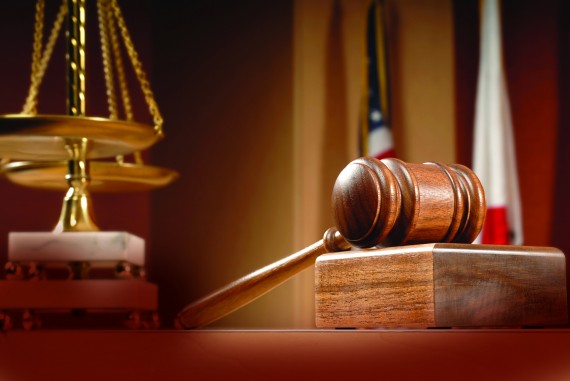

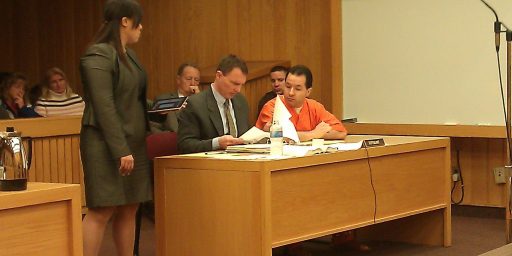
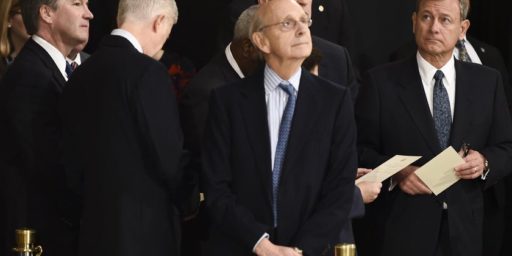

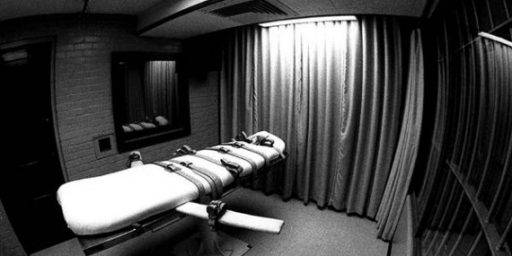
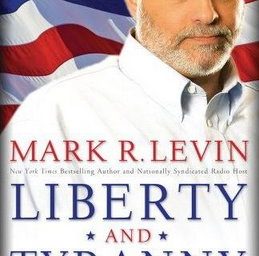
I’m glad this decision was made. But the travesty of Kaley v. US (and US v. Monsanto before that) renders this a narrow victory. I’m sure they will find an end-around the Constitution for this.
And this is yet another reason the Garland nomination makes me nervous. He has a long history of deferring to law enforcement. We could very close to the Supreme Court refusing to reign in the open season prosecutors and cops have on the wallets of supposed criminals.
(On a related note, the Justice Department has resumed the despicable equitable sharing program. So much for that.)
I don’t understand how the context switches so fast, when it moves from ‘thief’ to ‘defendant’…aren’t all the accused actually defendants, until found guilty of being a thief?
So, it’s either innocent until proven guilty, or not…but this one statement (out of context, granted) seems to presume that the Judge would already know the accused is guilty and can seize/hold their assets. They are eliminating the middle-man of an actual trial.
And just exactly who benefits from this decision? Lawyers! And what are the 8 sitting justices? Lawyers! And who do they work with? Lawyers! In an honest world they would have all had to recuse themselves for conflict of interest!
(sarcasm- just noting the obvious, and unavoidable, absurdities)
OT, but has anyone seen the latest foot-in-mouth release from the State Department? Jezebel caught a screen capture before they took it down.
(Read the comments. High class snark.)